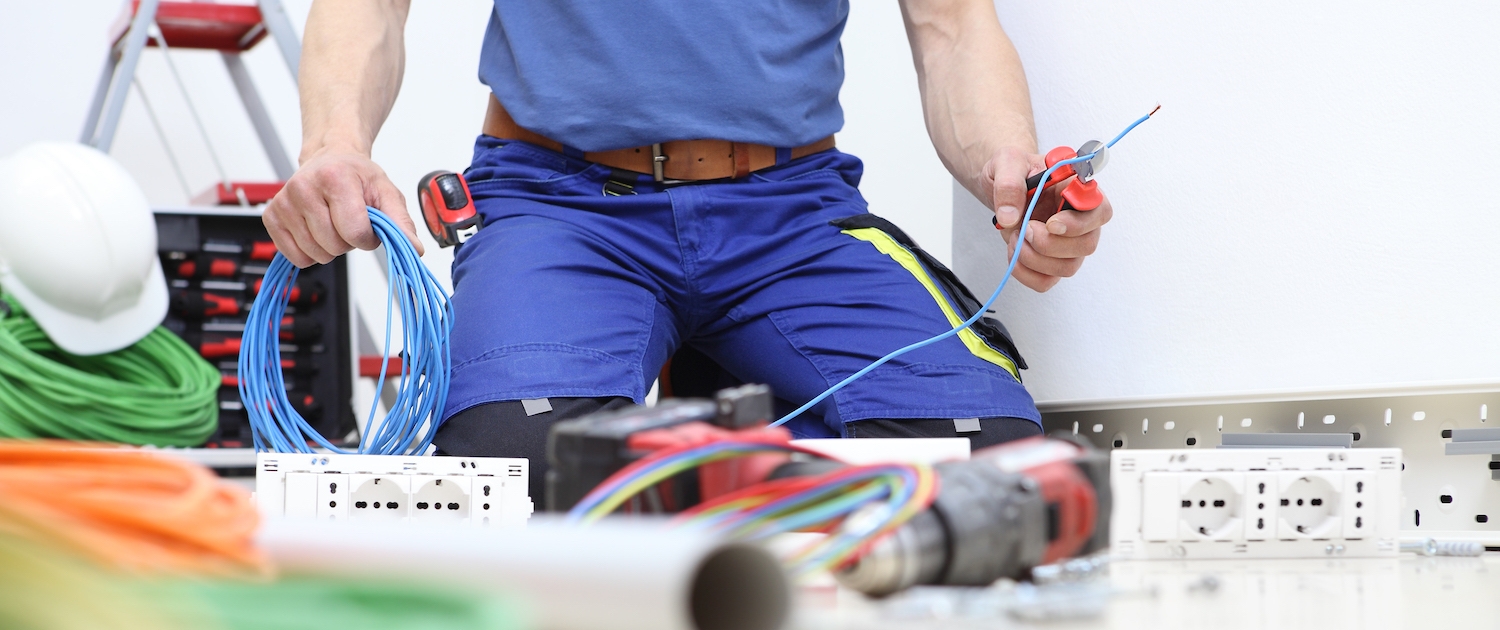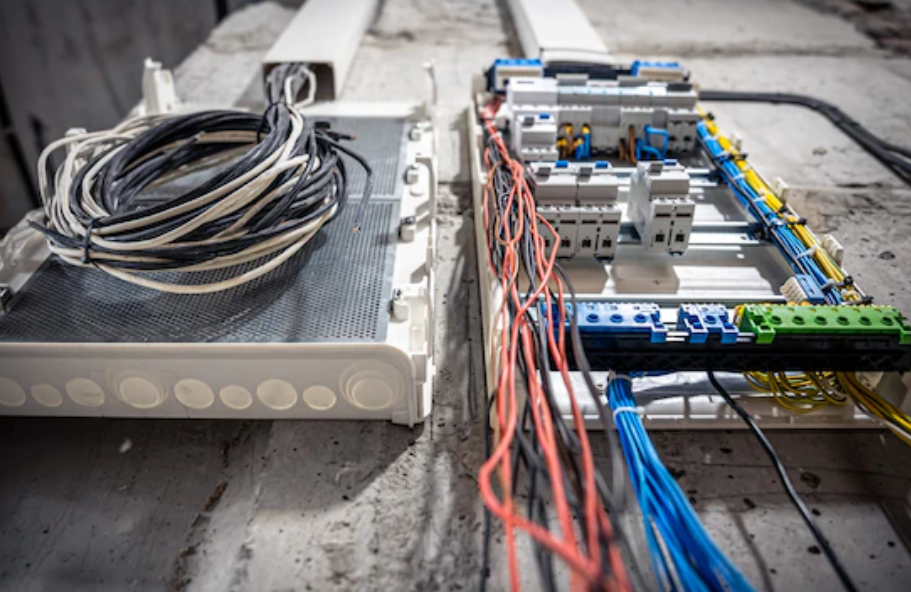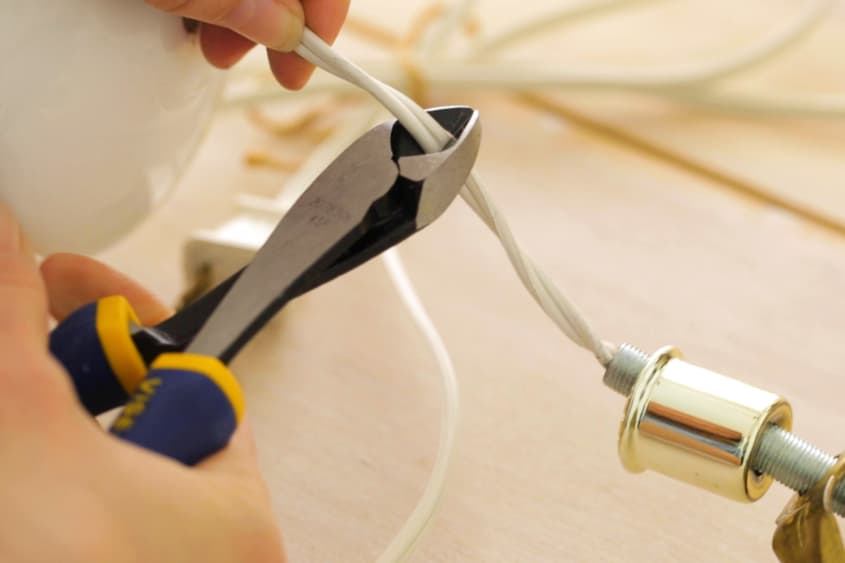Out Of This World Info About Can You Rewire A Cut Wire

The Curious Case of the Severed Strand
1. Is Rewiring a Cut Wire in Your Capabilities?
Let's face it, we've all been there. You're working on a project, feeling like a regular MacGyver, and snap! A wire gets cut. Panic sets in. Is your project doomed? Do you need to call in a professional? Well, hold on to your hats, because the answer, like most things in life, is "it depends." Rewiring a cut wire can be a simple fix, a moderately challenging task, or a downright dangerous undertaking, depending on the situation. Its all about understanding what youre dealing with and knowing your own limits.
Think of it like baking a cake. Can anyone technically bake a cake? Sure. But will everyone bake a cake that's edible and not a cemented brick? Probably not. Similarly, while rewiring a cut wire might seem straightforward, there are safety considerations, proper techniques, and potential long-term reliability issues that need to be considered. This isn't the time to wing it like you're auditioning for a slapstick comedy.
The key thing to remember is that electricity is powerful and doesnt care if youre having a bad day. It will happily zap you into next week if you give it the chance. So, before you even think about grabbing your wire strippers, ask yourself: Am I comfortable working with electricity? Do I have the right tools? Do I really know what I'm doing? If the answer to any of those questions is a resounding "nope," then calling a qualified electrician is the smartest move you can make. No shame in that game!
Ultimately, whether or not you can rewire a cut wire hinges on your skill level, your access to the correct equipment, and, most importantly, your understanding of electrical safety. We'll delve deeper into these aspects as we explore the process, precautions, and potential pitfalls.

Can You Rewire A House Without Removing Drywall Remove
Essential Tools and Materials
2. The Necessary Arsenal for Wire Repair.
Okay, so you've decided to take on the challenge. Before you dive in headfirst, you need to make sure you have the right tools and materials. Trying to rewire a cut wire with a butter knife and some duct tape is a recipe for disaster (and possibly a Darwin Award nomination). Heres a rundown of the essentials:
Wire Strippers: These are non-negotiable. Don't even think about using your teeth. Wire strippers allow you to remove the insulation without damaging the delicate wires inside. Get a good quality pair that fits the gauge of wire you're working with.
Wire Connectors (Wire Nuts or Crimp Connectors): These little beauties are what actually join the wires together. Wire nuts are the twist-on type, while crimp connectors require a crimping tool. Choose the type that best suits your project and skill level. And for heaven's sake, use the correct size! Too small and the connection will be loose; too big and it won't hold properly.
Electrical Tape: This isn't your everyday Scotch tape. Electrical tape is designed to insulate and protect the wire connections. Use it to wrap the connectors for added safety and to prevent accidental contact. Think of it as the safety net for your electrical tightrope walk. Also, test the tape to make sure it is still sticky.
Pliers: A good set of pliers is essential for twisting wires together and manipulating them into place. Needle-nose pliers are particularly useful for working in tight spaces.
Voltage Tester: Before you even touch a wire, use a voltage tester to make sure the power is OFF. This is not optional! Treat every wire as if it's live until you've confirmed otherwise. Your life may depend on it.
Safety Glasses: Protect your eyes from flying debris. You never know what might pop off when you're working with wires.
Gloves (Optional but Recommended): Insulated gloves can provide an extra layer of protection against electric shock. However, make sure they don't hinder your dexterity. You want to be able to handle the wires with precision.Having these tools on hand will significantly increase your chances of successfully rewiring a cut wire without turning your project into a fiery inferno. Remember, safety first!

How To Rewire A Lamp Apartment Therapy
Step-by-Step Guide
3. A Guide to Safely Rewiring.
Alright, you've got your tools, you've double-checked that the power is OFF (seriously, double-check!), and you're feeling confident. Let's get down to the nitty-gritty of rewiring that cut wire. Remember, this is a general guide, and specific situations may require different techniques. If you're unsure about anything, consult a qualified electrician.
Step 1: Prepare the Wires: Use your wire strippers to carefully remove about inch of insulation from the ends of the cut wires. Be careful not to nick or damage the wires themselves. A damaged wire is a weakened wire, and that's just asking for trouble down the road.
Step 2: Join the Wires: There are two main ways to join the wires: using wire nuts or crimp connectors. For wire nuts, twist the exposed ends of the wires together clockwise. Then, twist the wire nut onto the wires until it's snug. For crimp connectors, insert the exposed ends of the wires into the connector and use a crimping tool to securely crimp the connector. Make sure the connection is tight and won't come loose easily.
Step 3: Insulate the Connection: Wrap the wire nut or crimp connector with electrical tape. Overlap the tape onto the insulation of the wires to create a good seal. This will prevent accidental contact and protect the connection from moisture and corrosion.
Step 4: Test the Connection: Before you turn the power back on, give the wires a gentle tug to make sure the connection is secure. Also, visually inspect the connection to ensure there are no exposed wires or loose ends. If everything looks good, you can cautiously turn the power back on and test the circuit.
Step 5: Monitor and Maintain: Keep an eye on the connection for any signs of overheating or arcing. If you notice anything unusual, turn the power off immediately and investigate. It's always better to be safe than sorry.Remember, precision and attention to detail are key to a successful and safe wire repair. Don't rush the process, and always double-check your work. Electricity doesn't forgive mistakes.

Cut Wires. Need Help Rewiring Old Desktop Power Supply R/AskElectronics
When to Call a Professional
4. Electrical Limitations?
Look, sometimes you just have to admit defeat. There's no shame in recognizing that a particular task is beyond your capabilities. In fact, knowing your limits is a sign of intelligence and responsibility, especially when dealing with electricity. Here are some situations where calling a qualified electrician is the only sensible option:
You're Not Comfortable Working with Electricity: If the thought of touching a wire makes you break out in a cold sweat, then leave it to the professionals. Electricity is not something to be trifled with.
The Wiring is Old or Damaged: Old or damaged wiring can be brittle and prone to further damage. Attempting to repair it yourself could make the situation worse and create a fire hazard.
The Circuit Breaker Keeps Tripping: If the circuit breaker trips repeatedly after you've rewired the wire, there's likely a problem with the circuit that needs to be addressed by a qualified electrician.
You're Working with High Voltage: High-voltage wiring is extremely dangerous and should only be handled by trained professionals. Don't even think about messing with it yourself.
You're Unsure About Something: If you're not 100% confident in your ability to safely and correctly rewire the wire, then it's best to err on the side of caution and call an electrician. Your safety is worth more than saving a few bucks.Remember, a licensed electrician has the knowledge, skills, and experience to safely and effectively handle any electrical repair. They also have the proper tools and equipment to diagnose and fix problems that you might not even be aware of. So, when in doubt, call a pro.

Beyond the Band-Aid
5. A Lasting Solution for Rewiring.
So, you've successfully rewired the cut wire. Congratulations! But before you pat yourself on the back too hard, it's important to consider the long-term implications of your repair. A simple rewire might be a temporary fix, but it might not be the best solution in the long run.
Think of it like putting a band-aid on a broken leg. It might cover up the problem, but it doesn't actually fix it. Similarly, a rewired wire might work for a while, but it could eventually fail, leading to further problems.
One thing to consider is the overall condition of the wiring. If the wire was cut in the first place, there might be other areas that are also weak or damaged. Replacing the entire wire run might be a better solution than just rewiring the cut section.
Another thing to consider is the type of wire you're working with. Some types of wire are more prone to corrosion or damage than others. If you're working with an older type of wire, it might be time to upgrade to a newer, more durable type.
Finally, consider the load that the wire is carrying. If the wire is carrying a heavy load, it might be more prone to overheating or failure. Upgrading to a thicker gauge wire might be necessary to handle the load safely.
In short, a rewired wire can be a quick and easy fix, but it's important to consider the long-term implications and whether a more comprehensive solution is needed. Addressing the root cause of the problem and ensuring that the wiring is in good condition will help prevent future problems and ensure the safety of your electrical system.

Cut Wires. Need Help Rewiring Old Desktop Power Supply R/AskElectronics
FAQs About Rewiring Cut Wires
6. Frequently Asked Questions.
Q: Is it always safe to rewire a cut wire myself?A: Not always. It depends on your experience, the complexity of the wiring, and whether you're comfortable working with electricity. If you have any doubts, call a qualified electrician.
Q: What's the difference between wire nuts and crimp connectors?A: Wire nuts are twist-on connectors, while crimp connectors require a crimping tool. Both can be used to join wires, but crimp connectors are generally considered to be more reliable.
Q: Can I use regular tape instead of electrical tape?A: No! Regular tape is not designed to insulate electrical connections and can be a fire hazard. Always use electrical tape.
Q: What should I do if I get shocked while rewiring a wire?A: Immediately turn off the power at the breaker box and seek medical attention, even if you feel fine. Electrical shock can cause internal injuries that aren't immediately apparent.